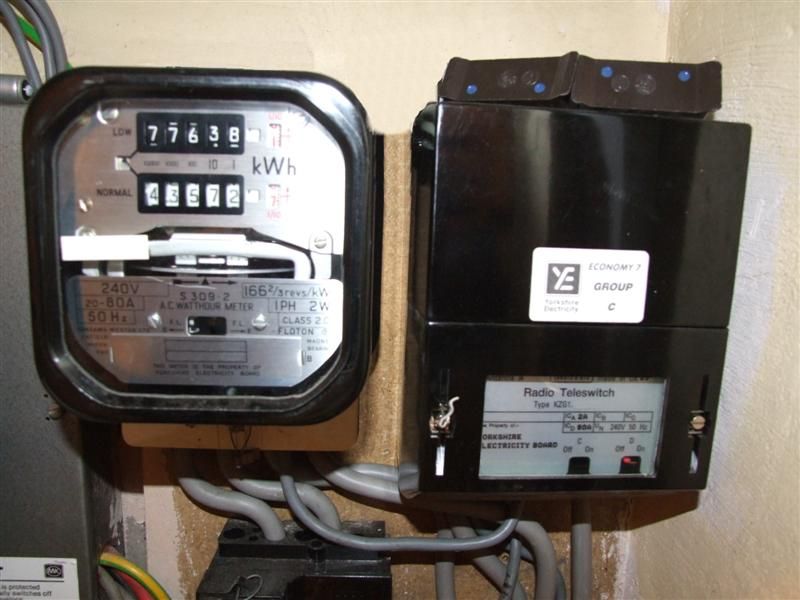Deemed Contracts for Business Energy: Everything You Need to Know (Out of contract)

A deemed contract is a default contract put in place when a contract has not been negotiated with your supplier. Deemed contracts are rolling, meaning if you do not switch suppliers each month your energy bill payments could increase. These typically occur when a customer moves into a new premises and has not yet agreed on any terms with the property’s current supplier.
The supplier decides the prices of deemed contracts, meaning that prices can vary depending on your supplier. Deemed rates are often some of the most expensive energy rates and can be up to 80% more expensive, so it is crucial that you get off deemed rates as soon as possible. The Evening Standard recently reported that 10% of micro-businesses are on a deemed contract. Many businesses are currently being overcharged for their energy bills.
If you think you are being overcharged for your commercial energy bills, then contact us, and our expert team will be more than happy to find you a great energy deal.

Why are you on a deemed tariff?
- Have you moved into a new premises?
If you move into a new premises, you may be placed on a deemed contract. To avoid being put on a deemed contract, contact the energy supplier responsible for the premises you are moving into as soon as possible.
- Has your contract been cancelled?
If your contract is cancelled by either you or the supplier, you could be switched onto deemed rates, although this is rare. If your contract does not state what will happen after the contract is terminated, and you are still using energy, you will be moved onto a deemed contract.
- Has your contract expired?
If you are not on a rollover energy contract, you will be moved to deemed rates for any energy you use once your contract ends This is why it is so important to know when your contract is due to be over, and you arrange a new contract as soon as possible.
Why Are Deemed Rates More Expensive?
The main reason these tariffs are deemed more expensive than others, is due to the lack of information that the supplier holds about your business and its energy consumption, which then automatically classes your business as a ‘high risk’. If you have not negotiated an agreement with your supplier, they will have no information on your consumption habits and will charge you more.
How Do Deemed Tariffs Affect Landlords?
If you are a commercial landlord and have a vacant premises, you may Receive a claim for payment based on a deemed rate contract.
This can still occur in other circumstances, where a lease still remains in place on the property and the tenant’s business has gone into administration, for example. It is important to stay up to date with meter readings and contact the energy supplier as soon as the property becomes vacant, to ensure that charges are accurately billed to the vacating tenant up to the point of moving out, and to negotiate a cheaper contract than ‘deemed rates’ once the property is vacant.
We have an article here to advise which contracts are best for an empty commercial site.
How Do You Tell If You’re On a Deemed Tariff?
Have you noticed a sharp increase in your energy bills? Then you may have been put on deemed rates, especially if you have just moved premises.
One in ten micro-businesses are currently on deemed rates, so it is essential that you check if you are, as it could save your business a lot of money.
Your supplier should contact you before moving you to a deemed contract and let you know about other available contracts. If your supplier has yet to contact you and has already moved you onto a deemed contract, you should contact them as quickly as possible.

What are My Rights on a Deemed Energy Tariff?
If your supplier has taken all the necessary steps to inform you about the deemed rate contract, then you legally must pay deemed rates. Your energy supplier must provide a copy of the total agreement with the complete breakdown of any charges and fees.
If your energy provider has failed to do any of the following, then you may be able to seek to terminate the contract:
- Provide you with a copy of your entire contract when asked for it.
- Contacted you before the end of your contract with complete information on other contract options and where to find more details about these different energy contracts.
Your supplier cannot:
- Stop you from switching suppliers for any reason or at any time.
- Ask for notice before terminating the deemed rates contract.
- Charge you a termination fee.
How to Avoid Being Switched to a Deemed Energy Contract
If you are a micro-business, according to Ofgem regulations, your supplier must provide you with a renewal letter.
This renewal letter should include:
- Your current prices
- Renewal prices
- Your current energy consumption
To avoid paying deemed rates, you should look to renew your current contract or sign a new contract to allow your new contract to start immediately after your current contract ends. The Purely Energy team are happy to assist you with this.
If you are a larger business, no regulations state that your supplier must contact you to provide this information. Therefore, it is essential for larger businesses to keep track of when their contracts are up for renewal and to arrange a new contract as soon as possible. Here at Purely Energy, we can track when your contract is due to end and find the best energy deals in the market to ensure you are not overcharged for your energy bills.

Can you Switch Energy Tariffs From a Deemed Contract?
Yes. With deemed energy contracts, you are free to terminate the contract at any time, provided you are switching to a new supplier. You will not be required to pay a termination fee when switching contracts. Here at Purely Energy, we aim to get you switched within one weeks of you contacting us and will ensure we contact you before your contract ends to remind you and help you avoid paying deemed rates.




